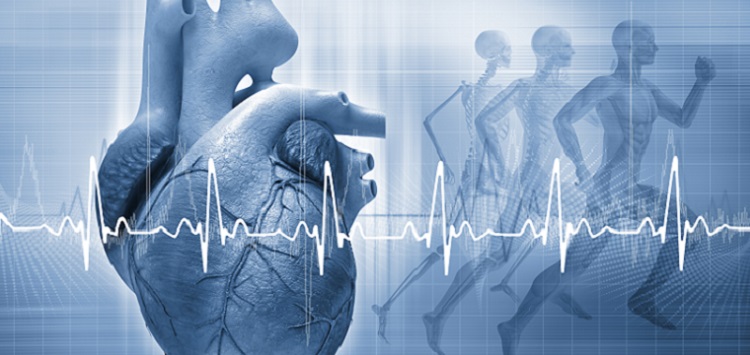Comprehending the Significance of Cardiology in Modern Healthcare Solutions
Cardiology plays an important function in modern-day health care, particularly as heart problem remains to be the leading reason for death worldwide. Developments in diagnostics and treatment have actually changed individual care, enabling earlier interventions and boosted end results. The shift towards preventive cardiology empowers individuals to handle their health proactively. As innovation remains to evolve, the combination of cutting-edge services might better redefine cardiology's influence on public health, prompting a more detailed exam of emerging fads and their ramifications.
The Occurrence of Heart Illness and Its Effect On Public Health And Wellness
Heart disease stays the leading reason of fatality internationally, its impact prolongs much past specific clients to affect public health systems and economic situations. The high frequency of cardiovascular disease positions a significant strain on healthcare sources, demanding raised financing for therapy, avoidance, and rehabilitation programs. Public health and wellness initiatives have to resolve danger elements such as weight problems, cigarette smoking, and inactive way of lives, which contribute substantially to the increasing occurrence of heart conditions.Moreover, the economic worry linked with heart problem is enormous, encompassing not just direct clinical prices however likewise indirect expenses associated to lost performance and premature death. Areas face obstacles in taking care of these expenses, usually causing variations in health care access and results. As the populace ages and lifestyle-related risks proceed to rise, the urgency for efficient cardiology interventions ends up being paramount. Subsequently, addressing heart illness is not only an issue of specific health however likewise a vital public wellness priority.
Breakthroughs in Cardiac Diagnostics and Imaging Techniques
Recent advancements in cardiac diagnostics and imaging techniques have actually changed the field of cardiology, enhancing the ability to check and identify cardiovascular disease. Techniques such as heart MRI, CT angiography, and echocardiography have actually become significantly sophisticated, providing thorough images of heart frameworks and functions. These modalities enable the early recognition of problems like coronary artery disease, cardiac arrest, and valvular disorders.Moreover, advancements in non-invasive diagnostics, such as wearable technology and remote monitoring gadgets, have actually encouraged patients and health care providers. These tools facilitate real-time tracking of heart rhythms and various other important signs, causing timely treatments. In addition, man-made intelligence is being incorporated into imaging evaluation, enhancing precision and performance in diagnosis.
Innovations in Therapy Alternatives for Heart Issues
Recent advancements in cardiology have actually led to considerable advancements in therapy options for heart disease. These consist of advanced surgical strategies that boost procedural outcomes and emerging medications that provide new opportunities for therapy. As the area advances, these developments play an important role in boosting person care and results.
Advanced Surgical Techniques
Developments in medical strategies have transformed the landscape of cardiology, providing brand-new expect individuals with heart conditions. Minimally invasive treatments, such as catheter-based treatments, have significantly decreased healing times and medical facility remains. Methods like robotic-assisted surgical procedure enhance accuracy, permitting cosmetic surgeons to navigate complex anatomical frameworks with better precision. Moreover, advancements in imaging technology facilitate real-time visualization during treatments, improving end results. Transcatheter aortic valve substitute (TAVR) exhibits an advancement in treating aortic stenosis, making it possible for shutoff substitute without open-heart surgical treatment. In addition, hybrid methods that incorporate catheter-based and medical methods offer customized solutions for various heart concerns. These innovative surgical techniques not only enhance individual safety and security but likewise broaden therapy alternatives, emphasizing the important role of innovation in contemporary cardiology practices.
Arising Treatments and medicines
As the landscape of cardiology remains to advance, emerging treatments and medicines play a critical duty in enhancing therapy choices for heart disease. Innovations such as novel anticoagulants and advanced lipid-lowering agents have actually transformed the monitoring of heart diseases, greatly minimizing client morbidity and death. Furthermore, the development of genetics therapies and regenerative medicine supplies encouraging methods for treating problems formerly deemed incurable. Scientific tests are continually exposing the effectiveness of these treatments, pushing the boundaries of conventional therapies. The assimilation of electronic health modern technologies facilitates individualized medicine, allowing for customized treatment strategies based on hereditary and way of life elements. Jointly, these improvements highlight the vibrant nature of cardiology, enhancing patient results and redefining requirements of treatment in modern-day health care.
The Function of Preventive Cardiology in Patient Treatment
Preventive cardiology plays a necessary duty in person treatment by concentrating on the identification of risk factors that contribute to heart problem. With way of life alteration methods and early discovery techniques, health care service providers can successfully minimize the occurrence of cardiovascular occasions - Cardiology. This aggressive strategy not just enhances client outcomes but also promotes long-lasting wellness
Danger Variable Recognition
While cardiovascular illness stay a leading source of morbidity and mortality worldwide, reliable risk variable identification acts as a cornerstone of preventive cardiology. Identifying risk factors such as hypertension, diabetic issues, hyperlipidemia, and family history is necessary for very early intervention. Healthcare specialists make use of different screening approaches to examine these variables, permitting tailored preventive procedures. Additionally, recognizing a patient's lifestyle choices, such as smoking and physical lack of exercise, further notifies danger evaluations. This thorough analysis enables clinicians to establish tailored care strategies intended at mitigating risks. By prioritizing danger factor identification, healthcare systems can boost person results and reduce the total problem of cardiovascular diseases, ultimately adding to enhanced public health methods and source allocation.
Lifestyle Alteration Approaches
A multitude of researches highlights the critical role of lifestyle modification methods in reducing cardio disease danger. These methods incorporate nutritional modifications, enhanced exercise, cigarette smoking cessation, and weight administration. By taking on a heart-healthy diet regimen rich in fruits, veggies, whole grains, and lean healthy proteins, individuals can reduce cholesterol degrees and high blood pressure. Routine exercise enhances the heart and enhances overall cardio health and wellness. Furthermore, giving up smoking substantially minimizes the danger of heart problem and enhances recovery rates for those with present problems. Weight management better adds to cardiovascular health and wellness by alleviating various other danger factors such as diabetic issues and hypertension. Implementing these lifestyle transforms not just advertises specific health but also offers as a keystone of preventative cardiology in patient treatment.
Early Detection Strategies
Lifestyle adjustments considerably add to lowering cardio condition threats, but they are most effective when coupled with very early detection strategies. Precautionary cardiology page emphasizes the relevance of recognizing potential heart problems prior to i was reading this they intensify right into serious problems. Techniques such as blood pressure surveillance, cholesterol testing, and advanced imaging innovations like echocardiograms play critical duties in reviewing cardiovascular health. Biomarkers and hereditary testing additionally improve the precision of very early detection, permitting tailored preventive strategies. Regular cardiac risk examinations equip healthcare companies to intervene proactively, possibly protecting against cardiac arrest and strokes (Cardiologist near me). By incorporating these early discovery approaches right into routine care, people can gain from prompt way of living treatments and targeted therapies, inevitably boosting end results and improving quality of life
Integrating Modern Technology Into Cardiology Practices
As innovations in technology remain to improve various fields, the assimilation of cutting-edge devices and systems into cardiology practices has become vital for improving person treatment and end results. Telemedicine platforms permit cardiologists to monitor patients remotely, enhancing accessibility to care while lowering the problem on healthcare facilities. Wearable devices, such as smartwatches, make it possible for continuous heart price tracking, notifying both individuals and medical professionals to possible issues in real-time. In addition, fabricated intelligence (AI) is being utilized to evaluate vast quantities of heart data, aiding in early diagnosis and customized treatment plans. Advanced imaging methods, including 3D echocardiography, improve visualization of heart frameworks, bring about a lot more exact interventions. Digital health documents (EHRs) streamline patient info administration, making sure that cardiologists have immediate accessibility to essential information. Together, these technological improvements are changing cardiology, advertising positive management and boosted health results for individuals with cardio conditions.
The Importance of Client Education And Learning and Engagement
Patient education and learning and engagement play a pivotal role in the monitoring of cardiovascular health and wellness. By furnishing people with understanding regarding their conditions, therapy choices, and lifestyle changes, healthcare suppliers empower people to take an energetic function in their care. This proactive technique can lead to enhanced adherence to prescribed medicines, dietary adjustments, and workout programs, inevitably decreasing the risk of complications.Engagement likewise promotes a strong patient-provider this article connection, motivating open interaction and trust fund. When patients feel informed and included, they are more probable to voice problems and ask inquiries, which can cause much better medical results. In addition, instructional sources, such as workshops or electronic systems, can enhance understanding and advertise self-management methods. In general, focusing on person education and learning and engagement is essential for boosting cardiovascular health and wellness, enhancing high quality of life, and lowering health care expenses associated with cardiovascular diseases.
Future Trends in Cardiology and Their Prospective Effect

Regularly Asked Concerns
What Lifestyle Changes Can Lower Cardiovascular Disease Risk?
The current concern addresses way of living adjustments that can greatly decrease heart condition threat. Cardiologist near me. Adopting a balanced diet, taking part in regular physical task, preserving a healthy and balanced weight, taking care of tension, and preventing tobacco can notably enhance cardio health
How Can I Identify Very Early Indications of Heart Problems?
Recognizing early signs of heart troubles involves tracking symptoms such as breast discomfort, shortness of breath, tiredness, and irregular heart beat. Prompt awareness of these signs can motivate needed clinical evaluation and treatment for much better results.
What Are the Differences In Between Cardiologists and Heart Surgeons?
The distinctions between cardiologists and heart specialists hinge on their functions; cardiologists mostly detect and handle heart conditions with non-invasive approaches, while heart surgeons do surgeries to correct architectural heart concerns. Each plays an important, distinctive duty.

Just how Typically Should I Get My Heart Wellness Checked?
The regularity of heart medical examination differs based on private risk aspects. Generally, adults should undergo examinations each to 2 years, while those with status quo may call for even more regular analyses as recommended by medical care experts.
What Role Does Genes Play in Heart Problem Threat?
Genes considerably affects heart condition danger, with domestic patterns indicating acquired conditions. Particular genetics can predispose individuals to hypertension, cholesterol problems, and various other cardiovascular issues, highlighting the relevance of genetic screening in examining heart health. Heart illness remains the leading reason of fatality internationally, its impact prolongs much beyond individual patients to influence public health systems and economic climates. Public wellness efforts must attend to danger aspects such as weight problems, cigarette smoking, and inactive way of lives, which add greatly to the climbing incidence of heart conditions.Moreover, the financial concern linked with heart disease is tremendous, encompassing not just direct clinical costs however likewise indirect costs related to lost productivity and early mortality. Precautionary cardiology plays a necessary function in patient treatment by concentrating on the recognition of threat aspects that contribute to heart illness. Man-made intelligence (AI) and device knowing are enhancing diagnostics and patient surveillance, enabling early discovery of heart conditions. The differences between cardiologists and cardiac doctors exist in their duties; cardiologists mostly take care of and identify heart conditions through non-invasive techniques, while cardiac surgeons do medical treatments to fix structural heart issues.